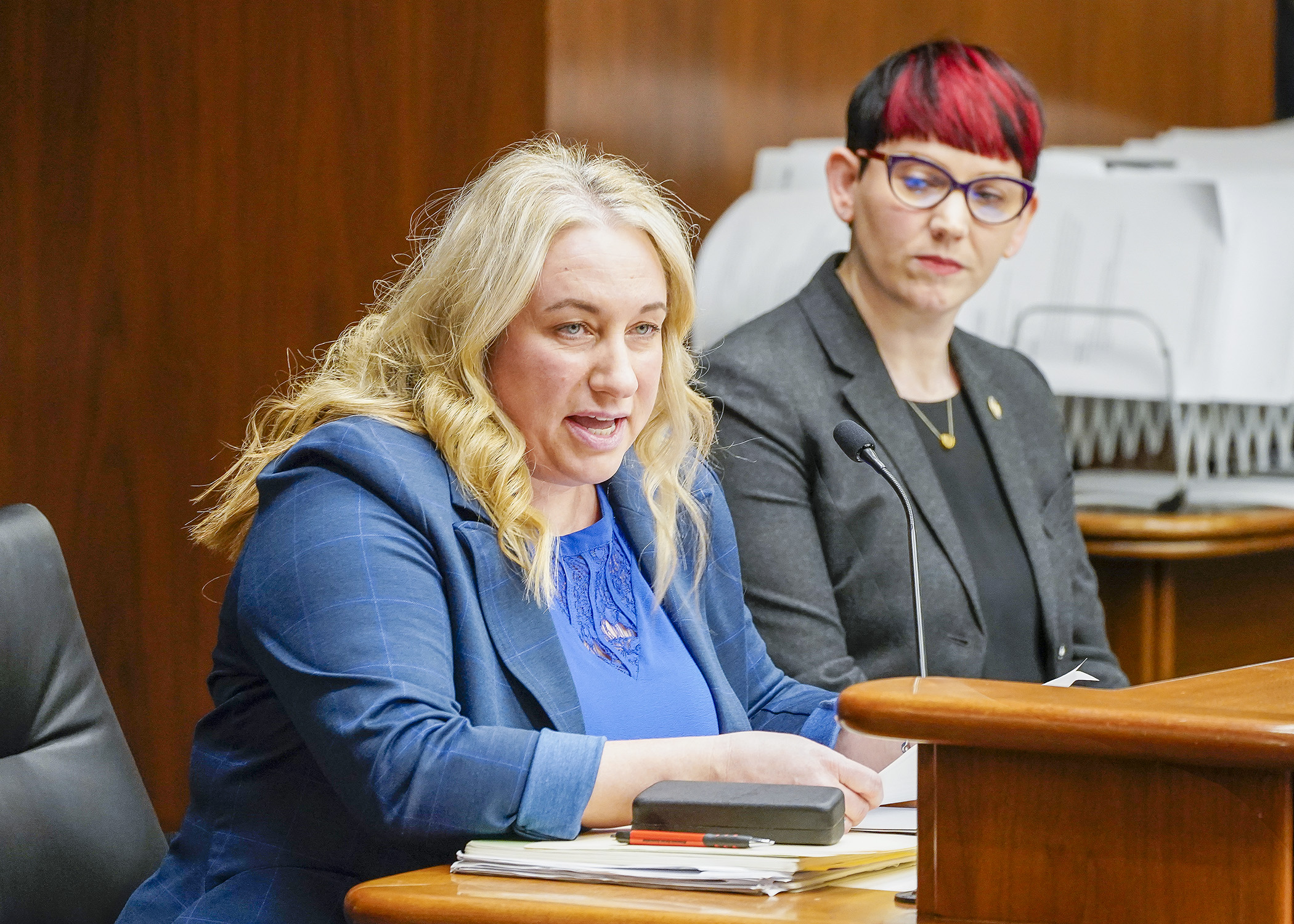Bill to help retain nurses at Minnesota bedsides clears House health panel

Many nurses cite insufficient staffing as to why they leave their jobs.
Yet, according to the Rep. Sandra Feist (DFL-New Brighton), there is no shortage of nurses.
“In 2022, there were more than 122,000 registered nurses in Minnesota, an increase of more than 4,000 over the previous year,” she said.
Rather, retention is the problem.
In addition to staffing issues, stress, management challenges, and poor working conditions have resulted in veteran nurses retiring early and new nurses leaving the bedside.
Diana Smith said she has been punched, kicked and spit on in her 15 years working in the emergency room. “There is no other profession where violence is acceptable, so why is it OK for health care workers?”
That’s one example of why Feist sponsors HF1700, referred to as the “Keeping Nurses at the Bedside Act,” which seeks to improve working conditions for hospital nurses.
On Tuesday, the House Health Finance and Policy Committee approved the bill, as amended, on a 9-7 party-line vote, and referred it to the House Labor and Industry Finance and Policy Committee.
“Our solution gives direct care nurses a voice in staffing at the hospitals where they are serving, addresses workforce shortages, and it addresses the increasing occurrences of violence at our hospitals. This bill is a win-win for Minnesota nurses, hospitals, and patients,” Feist said in a post-meeting statement.
The provision generating the most opposition would require hospitals to establish both a nurse staffing committee and a nurse workload committee, with direct care nurses compromising at least 35% of membership.
The staffing committee would develop hospital core staffing plans to be implemented by the hospital and generate quarterly nurse staffing reports. The workload committee would control dispute resolution procedures to resolve staffing concerns, as well as try to settle violations from the core staffing plan.
Opponents believe the committees would lack accountability and negatively impact rural hospitals.
“Just like for patients in our hospitals, a massive dose of the wrong medication will lead to a crash,” said Adam Karlen, clinical nursing director at Park Nicollet Health Services.
The bill would make the following appropriations from the General Fund during the 2024-25 biennium:
- $20 million for competitive grants to hospitals, community health centers, rural health centers and medical professional associations to improve mental health of health care workers;
- $10 million for the hospital nursing education loan forgiveness program;
- $100,000 for the prevention of violence in health care;
- $100,000 for nursing instructors under the existing health professional education loan forgiveness program;
- a-yet-to-be decided appropriation for creating and posting a grading system, plus grading hospitals on compliance with their core staffing plans;
- another to-be-determined appropriation for the costs associated with developing and posting quarterly nurse staffing reports; and
- an appropriation still to be specified for a hospital staffing study.
Related Articles
Search Session Daily
Advanced Search OptionsPriority Dailies
Speaker Emerita Melissa Hortman, husband killed in attack
By HPIS Staff House Speaker Emerita Melissa Hortman (DFL-Brooklyn Park) and her husband, Mark, were fatally shot in their home early Saturday morning.
Gov. Tim Walz announced the news dur...
House Speaker Emerita Melissa Hortman (DFL-Brooklyn Park) and her husband, Mark, were fatally shot in their home early Saturday morning.
Gov. Tim Walz announced the news dur...
Lawmakers deliver budget bills to governor's desk in one-day special session
By Mike Cook About that talk of needing all 21 hours left in a legislative day to complete a special session?
House members were more than up to the challenge Monday. Beginning at 10 a.m...
About that talk of needing all 21 hours left in a legislative day to complete a special session?
House members were more than up to the challenge Monday. Beginning at 10 a.m...